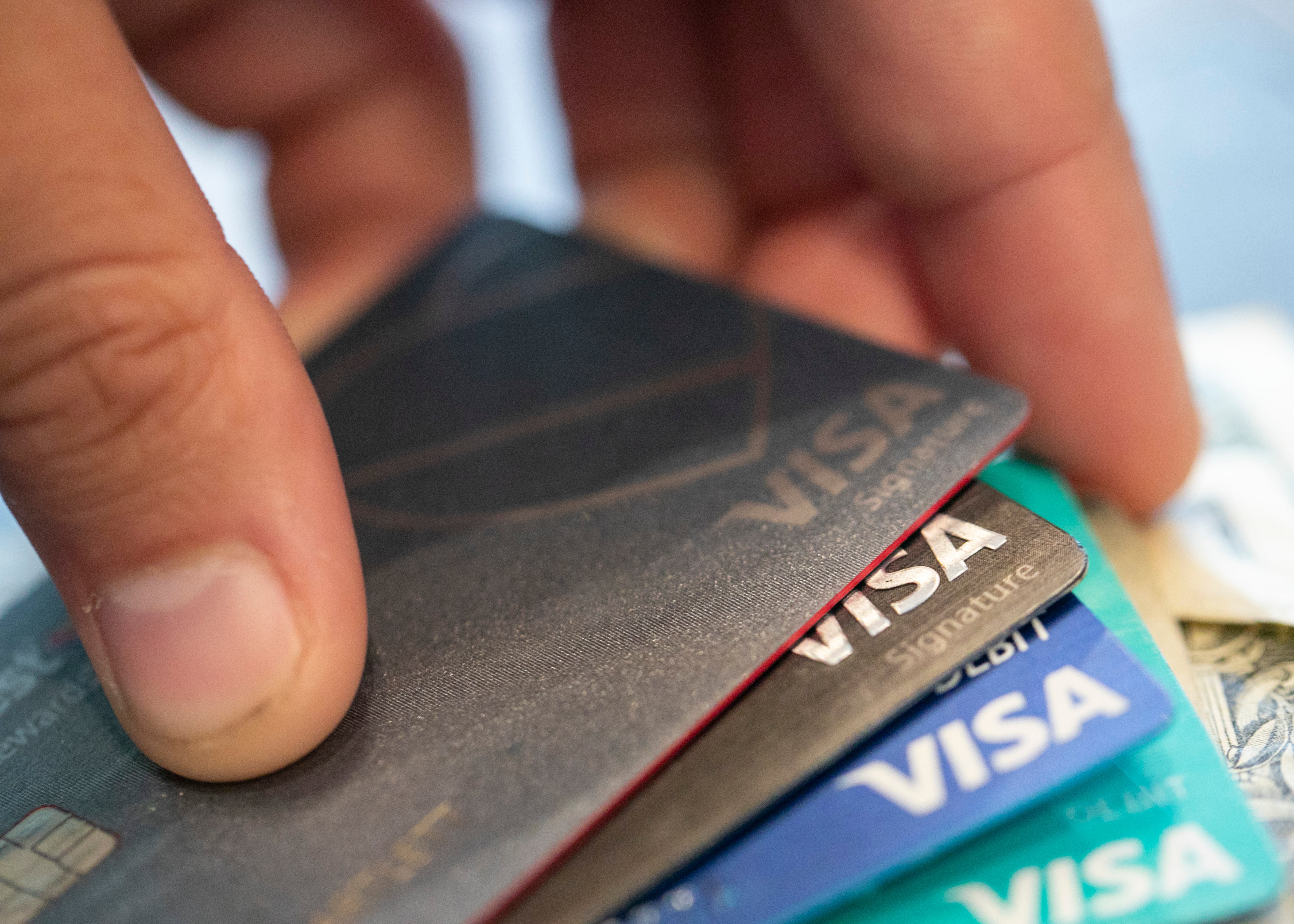Americans can pay their credit card bills, but for how long?
The coronavirus pandemic hasn’t stopped Americans from keeping up with their credit card payments, thanks in large part to government relief programs passed by Congress earlier this year

Your support helps us to tell the story
From reproductive rights to climate change to Big Tech, The Independent is on the ground when the story is developing. Whether it's investigating the financials of Elon Musk's pro-Trump PAC or producing our latest documentary, 'The A Word', which shines a light on the American women fighting for reproductive rights, we know how important it is to parse out the facts from the messaging.
At such a critical moment in US history, we need reporters on the ground. Your donation allows us to keep sending journalists to speak to both sides of the story.
The Independent is trusted by Americans across the entire political spectrum. And unlike many other quality news outlets, we choose not to lock Americans out of our reporting and analysis with paywalls. We believe quality journalism should be available to everyone, paid for by those who can afford it.
Your support makes all the difference.The coronavirus pandemic hasn’t stopped Americans from keeping up with their credit card payments, thanks in large part to government relief programs passed by Congress earlier this year.
For some, however, the ability to keep buying things with plastic and then pay the bill likely depends on whether current negotiations in Washington produce another round of economic aid. Many existing aid measures are set to soon expire.
The pandemic plunged the U.S. economy into a deep recession, costing millions of Americans their jobs and businesses. While the economy has recovered somewhat, the latest report on the job market shows the pace of hiring has slowed in the face of a wave of new COVID-19 cases.
While the banking industry has not shared industry wide statistics, the major credit card issuers — JPMorgan Chase, Bank of America, Citigroup, Capital One and American Express — have reported relatively stable delinquency rates despite the recession. Even Capital One, which lends to borrowers who may be less creditworthy, reported a decline in delinquency rates since a momentary spike earlier this year.
But both industry data and analysts have made it clear: The measures the government took earlier this year have worked, and without them, the industry and cardholders would be in deeper trouble.
“The stimulus and unemployment benefits have definitely helped the lower end of (credit card borrowers),” said Sanjay Sakhrani, an analyst at investment bank Keefe, Bruyette & Woods.
As part of the $2 trillion coronavirus aid bill Congress enacted in March, most Americans got a $1,200 stimulus check. While the Census Bureau found that the bulk of Americans used their funds toward household expenses, roughly one out of five used it to pay down debt. Experts also argue that some household expenses would have ended up on credit cards were it not for stimulus checks and healthy unemployment benefits.
In some ways, what’s going on in the credit card market also reflects the diverging fortunes of those impacted by the pandemic.
Since the Great Recession more than 10 years ago, few mainstream credit card companies have put effort into lending to subprime borrowers or to the poor. Credit card companies are now focusing most of their attention on middle- to upper-class borrowers, who typically have jobs allowing them to work remotely and are not in businesses that have been shut down due to the virus.
Even so, many middle-class individuals who do work in industries impacted by the pandemic have gotten financial relief through extended unemployment benefits or government and private programs that have allowed borrowers to enter into forbearance or deferred payment programs.
“But those measures are now sunsetting, and (once they are gone, these borrowers) are most likely to be the first to feel pressure and pain,” said Sakhrani of Keefe, Bruyette & Woods.
Congress appears to be making progress toward an agreement on a new COVID-19 relief bill in the $1 trillion range. Additional unemployment benefits are likely, though it's unclear if Americans will see another round of stimulus checks.
Credit card executives have for months been bracing for the impact on their customers if there is no new aid.
“(Like our competitors), our customers are also helped by external factors such as the impact of record levels of government stimulus and the broad availability of forbearance programs,” said Jeff Campbell, American Express' chief financial officer, in October with a call with investors. “As a result, we do remain cautious about the potential for future shocks to the economy.”
One point of uncertainty is how banks are reporting their credit card loans. The coronavirus aid bill and government regulators have required the industry to provide borrowers accommodations and relief without having to report these loans as troubled on their balance sheets, which accounting rules would otherwise require the banks to report as losses.
In the absence of these programs and regulations, it's unclear whether delinquencies would be higher, at least on paper.